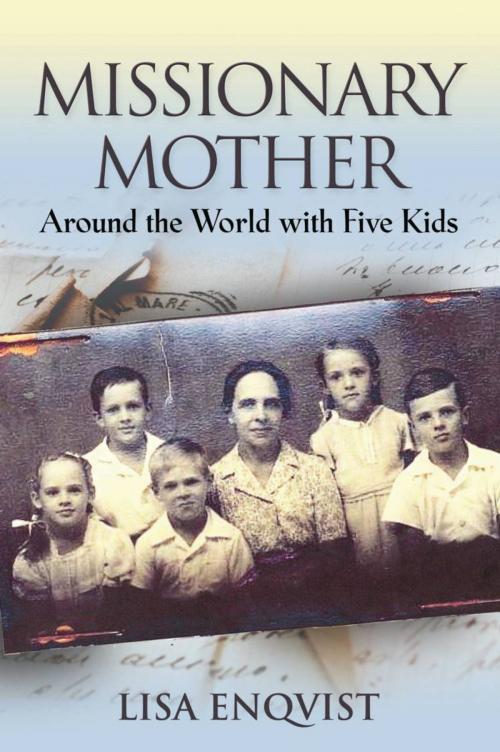| Author: | Lisa Enqvist | ISBN: | 9781634906463 |
| Publisher: | BookLocker.com, Inc. | Publication: | September 1, 2015 |
| Imprint: | Language: | English |
| Author: | Lisa Enqvist |
| ISBN: | 9781634906463 |
| Publisher: | BookLocker.com, Inc. |
| Publication: | September 1, 2015 |
| Imprint: | |
| Language: | English |
Anna had felt the pain of being an outsider in her own family. She would never submit her children to what she had endured and was determined always to be with them while they still needed her. She never imagined what the price of that decision would be. This book is an attempt to show what she went through as she clung to her choice to keep her children together and give them a deep feeling of security in the turmoil of war and poverty.
When the journey began, the oldest child was not yet seven years old, and the youngest had not learned to walk. Seven years and three months later the family returned to Finland. The goal of that journey was to go back to Manchuria, where Anna and her husband Toimi had lived and worked many years before World War II. The Civil War between Mao Zedong and the Nationalistic army changed their plans. They had to flee from Shenyang in North East China to Kunming in the south-west.
Two years later, Anna had to take the children to safety again. This time she traveled alone with them to Ceylon (Sri Lanka). Toimi stayed on in China as long as he could. Toimi’s vision drove him to share the good news of God’s redeeming love and His gift of Eternal life through faith in Jesus Christ. Nothing could stop him; not illness, war, or poverty; not advancing troops, loneliness, nor hunger. After eleven months, he joined the family in Ceylon, but his vision drove him to reach the people scattered around the island. He hardly ever had time to rest.
Anna shared his vision, but she felt her primary duty lay with their children. Sometimes, even Toimi could not understand her stubborn decision in refusing to leave the children for more than a few days in the care of other people. He wanted her to be with him as much as possible.
Her letters, written to her family during those long years, give glimpses of unbelievable struggles that would send most of us running back to the safety of home. Surprisingly often, her complaints are followed by an exclamation of expectation: Now God can show us how He keeps His promises. That discernment is woven with a moving honesty and thankfulness throughout this true account written by her youngest child. It is both inspiring and humbling and one you won’t soon forget.
Anna had felt the pain of being an outsider in her own family. She would never submit her children to what she had endured and was determined always to be with them while they still needed her. She never imagined what the price of that decision would be. This book is an attempt to show what she went through as she clung to her choice to keep her children together and give them a deep feeling of security in the turmoil of war and poverty.
When the journey began, the oldest child was not yet seven years old, and the youngest had not learned to walk. Seven years and three months later the family returned to Finland. The goal of that journey was to go back to Manchuria, where Anna and her husband Toimi had lived and worked many years before World War II. The Civil War between Mao Zedong and the Nationalistic army changed their plans. They had to flee from Shenyang in North East China to Kunming in the south-west.
Two years later, Anna had to take the children to safety again. This time she traveled alone with them to Ceylon (Sri Lanka). Toimi stayed on in China as long as he could. Toimi’s vision drove him to share the good news of God’s redeeming love and His gift of Eternal life through faith in Jesus Christ. Nothing could stop him; not illness, war, or poverty; not advancing troops, loneliness, nor hunger. After eleven months, he joined the family in Ceylon, but his vision drove him to reach the people scattered around the island. He hardly ever had time to rest.
Anna shared his vision, but she felt her primary duty lay with their children. Sometimes, even Toimi could not understand her stubborn decision in refusing to leave the children for more than a few days in the care of other people. He wanted her to be with him as much as possible.
Her letters, written to her family during those long years, give glimpses of unbelievable struggles that would send most of us running back to the safety of home. Surprisingly often, her complaints are followed by an exclamation of expectation: Now God can show us how He keeps His promises. That discernment is woven with a moving honesty and thankfulness throughout this true account written by her youngest child. It is both inspiring and humbling and one you won’t soon forget.















